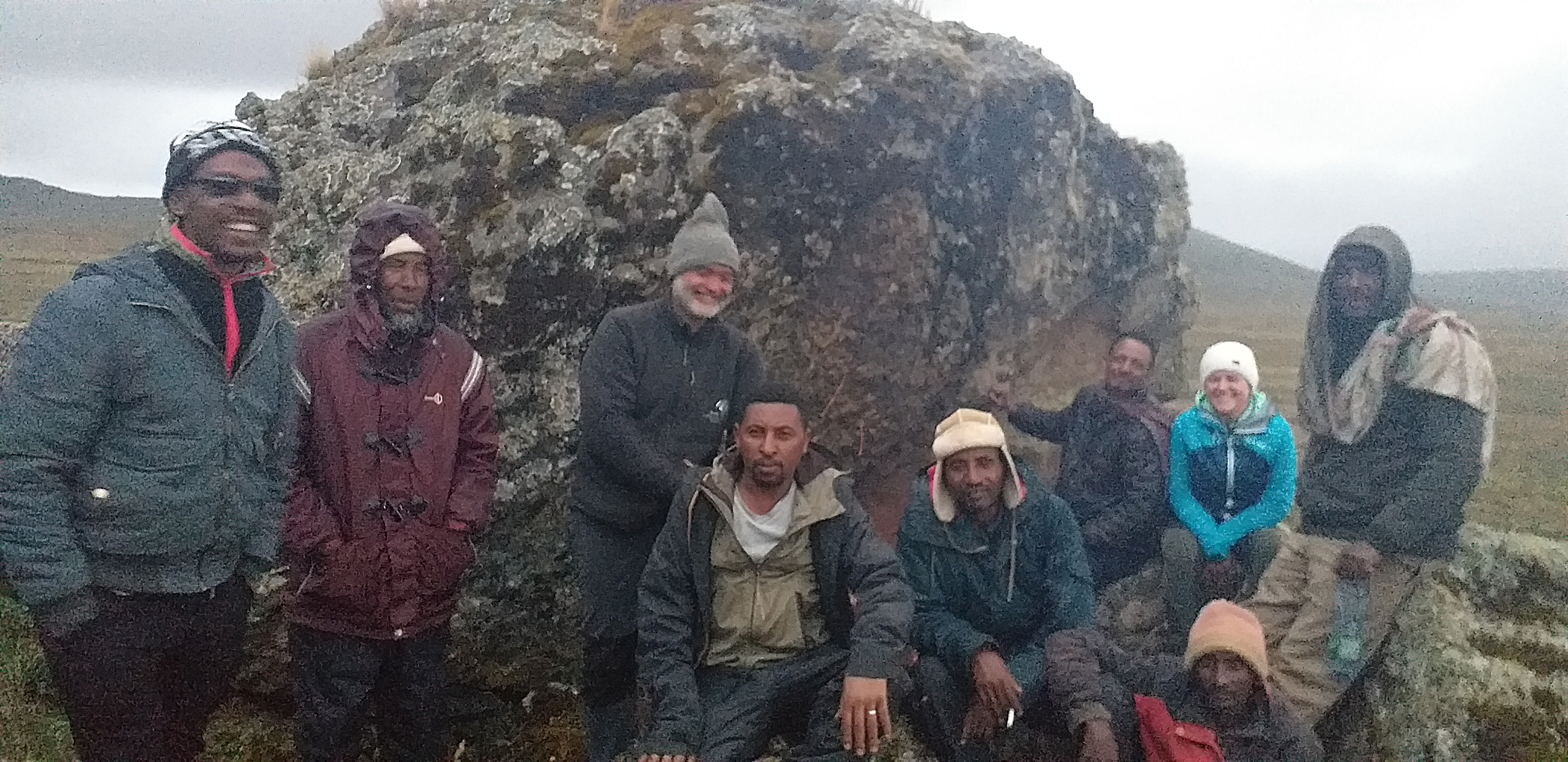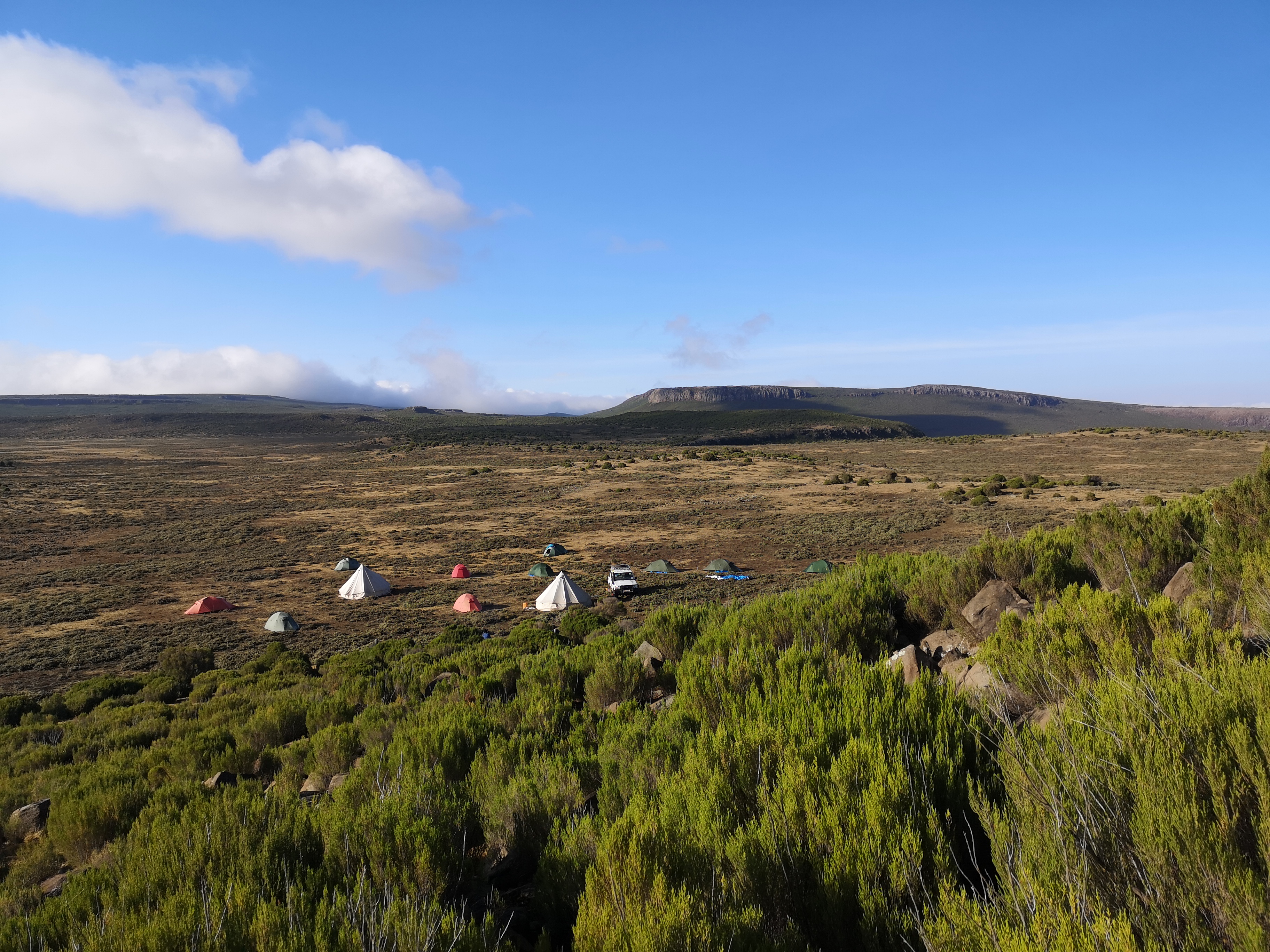

By Clara Buxbaum
In March 2020 I had the privilege to spend a week with the EWCP team in the field, in the Bale Mountains National Park. I have been to several African countries before and Ethiopia proved to me again that each country is, without a doubt, uniquely special. I was fascinated by the Afroalpine landscape, amazed by their local cuisine and overwhelmed by the hospitality of the people I met.
I am a veterinary student at the University of Veterinary Medicine, Vienna, and I had asked to join EWCP for some practical experience to complete my elective module in Conservation Medicine. I couldn't miss the opportunity to work with such incredible animals as Ethiopian wolves!
After arriving in Ethiopia, I joined Muktar Abute, EWCP Vet Team Leader, and the rest of the team to assist with a trial testing a canine distemper vaccine in Ethiopian wolves, spending a week in the field to recapture wolves that had been vaccinated against distemper a few weeks before.
We hiked through the national park and into the mountains, where we hoped to find the wolves. Over the week we camped at two carefully selected sites that became both the base of our work and home. Even though some of the tean have been working with EWCP for many years, everyone was extremely welcoming and made sure I was thoroughly involved in the whole process.
 |
Of course, it’s not just all excitement, because capturing wild animals requires careful planning and attention to welfare, and asks a lot of patience from you as well. Getting out of a warm sleeping bag in the middle of the night when a wolf had been trapped was, admittedly, a real challenge, but the knowledge that these vaccines could save these animals’ lives and protect the species gives you the necessary motivation to get up and get to work, despite the discomfort!
The wolves are carefully caught following strict protocols. The veterinary officer handles the animals with great care and it was delightful to see the appreciation each team member has for the precious endangered animal they are working with. Everyone involved truly cares for the wolves and it comes across clearly in their work. The wolves have to be anaesthetised, so the experienced team work quickly and efficiently so the animals are not sedated for any longer than necessary. Blood samples were taken from each animal to measure antibodies in the serum back at the laboratory. Then vaccines for rabies and canine distemper were administered before we took the wolf's measurements - this is useful for EWCP's records and monitoring the animal's health.
It was great to see conservationists who believe in their work and who are aware of the value they add to the environment they work in.
Unfortunately Covid-19 cut short my time in Ethiopia and the University called for my return. I really want to thank the entire EWCP team for this experience, and special thanks go to Eric Bedin, EWCP Field Director, who made sure that this would be a valuable and unforgettable experience for me. I do hope to be able to return to the Bale Mountains one day.
